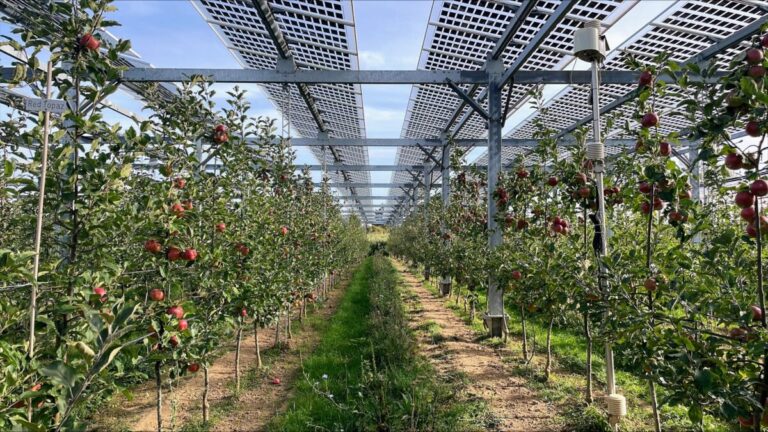Under new Czech agrivoltaic energy rules, farmers and developers do not need approval to change land designations and zoning plans for agricultural areas intended for solar energy generation. The provisions currently only allow agrivoltaic energy to be deployed in orchards and vineyards.
The Czech parliament has passed an amendment to the agricultural land law that will allow the construction of agricultural voltaic plants across the country.
“The law simply states that in order to develop an agrivoltaic project, developers do not need to change the land designation and zoning plan of a particular area,” says Jan Krčmář, executive director of the Czech Solar Association (Solární Asociace). , told pv magazine. “Under the previous rules, it was not possible to build PV on agricultural land without re-designating it for zoning reasons.”
The new provisions also state that farmers can still farm on their land and that agri-PV systems cannot occupy more than 10% of the total area of their farms.
“The new rules currently only allow agrivoltaic energy to be deployed in orchards, hopyards and vineyards, but do not allow vertical systems on fields,” Krčmář said. “We were told that this would also be allowed after an initial test period.”
The new regulations do not force farmers operating agrivoltaic installations to achieve minimum agricultural yields, as in countries such as Germany, France or Italy.
“We don’t like these ‘percentage restrictions’ because farmers normally have different agricultural yields every year and it is very difficult to check whether they have harvested 90% or 80% compared to control areas.”
This content is copyrighted and may not be reused. If you would like to collaborate with us and reuse some of our content, please contact: editors@pv-magazine.com.


